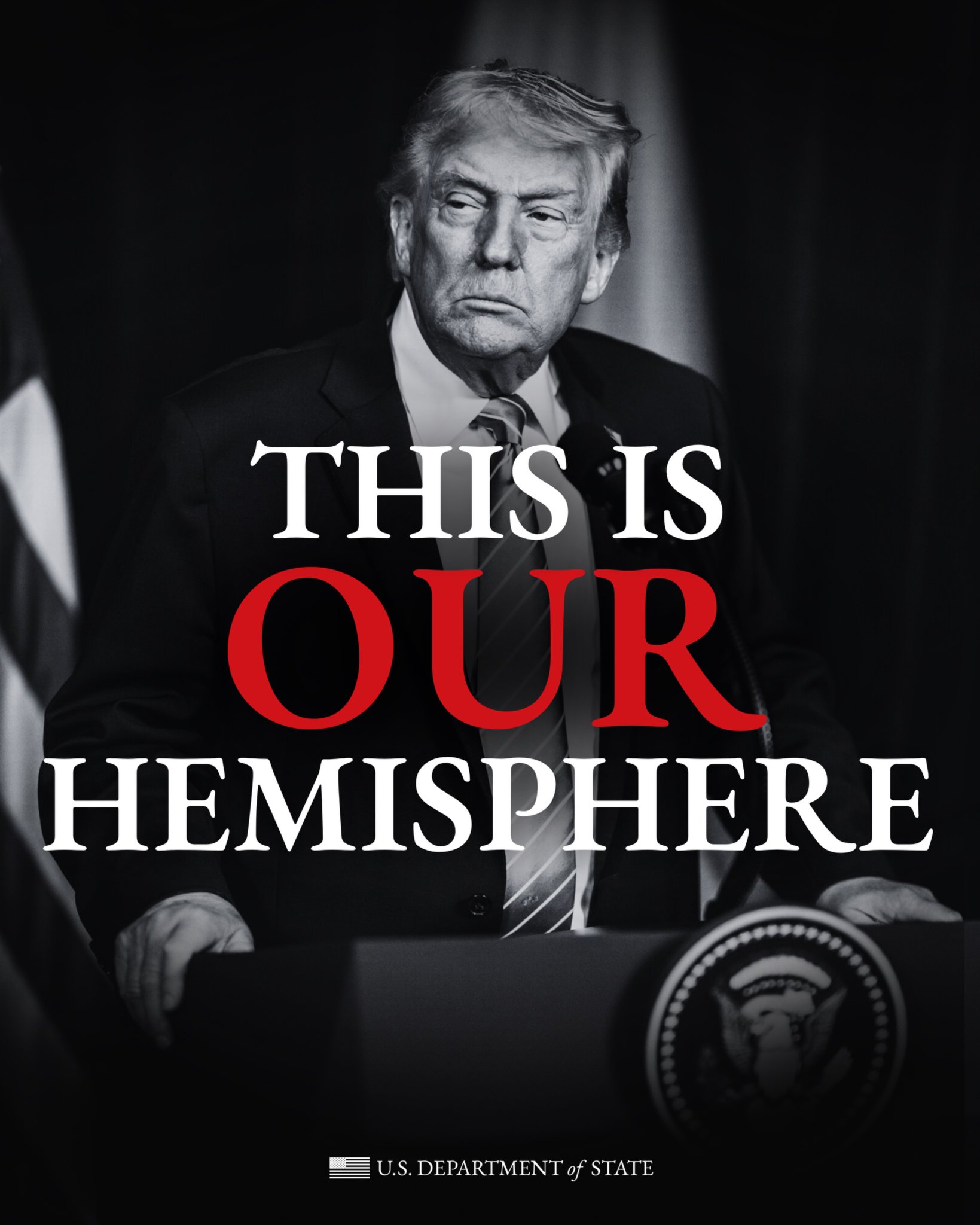Donald Trump’s first 100 days in office produced 142 executive orders, a global trade war, a record stock market decline, a plummeting dollar, an economic downturn, 121,000 government employers on Elon Musk’s chopping block, and a flurry of diplomatic crises. The sheer scale of changes, enabled by a massive presidential power grab, has left the world reeling.
Pundits have called this onslaught a “shock and awe” tactic–a show of overwhelming force and breadth aimed at stunning and confusing the enemy. Steve Bannon apparently coined the phrase “flood the zone” to refer to multi-front attacks that divide and distract the opposition from a hidden core strategy. In the United States, the tactic is working to a certain extent so far. Issue-based organizations—environmentalists, human rights groups, feminists, economic justice activists, immigrant rights, pro-democracy forces—have become so accustomed to working in silos that the across-the-board offensive has left them not knowing where to start.
To those of us watching from what is a not-at-all safe distance here in Mexico, it’s like being trapped in a room with a monkey playing with a loaded gun. Mexico has been on constant alert to try to dodge the next bullet. Monthly tariff threats are the biggest part of it, but there is also the periodic threat to invade with the pretext of the drug war. President Claudia Sheinbaum has sent diplomatic notes on several occasions, including to ask Trump not to send Mexican migrants to Guantánamo, to request he explain details of his planned military base on the shared border, and to protest meddling remarks on Mexican internal affairs from a Trump official at a UN meeting.
Sheinbaum has also banned Sec. of the Interior Kristi Noem’s racist anti-immigrant spots, threatened counter-tariffs (which she has not imposed) and denounced Trump’s bully tactics. The Mexican president’s responses to Trump’s threats have gained her a reputation in many Latin American countries as a leader in standing up to Donald Trump. The reality shows more capitulation than the rhetoric might imply, but even the rhetoric is a refreshing change from her predecessor Andrés Manuel López Obrador’s gushing praise for Mexico’s nemesis during Trump’s first term.
Those who predicted the worst for a leftist woman president of an economically dependent country up against a misogynist sex offender and billionaire capitalist have so far been proven wrong. But threat-triggered negotiations—a key part of Trump’s transactional politics—create constant tension. And there is another pillar of Trump policy that Sheinbaum hasn’t even faced yet: his far-right, anti-gender policies.
Centering anti-gender ideology and practice
Given Trump’s bombastic and semi-incoherent communication style, his actions can seem like the spewing of an unhinged and way-too-powerful megalomaniac. But we’d be dead wrong to think there’s no method to this madness. Trump and his team are brilliant strategists; they have a plan and a vision.
The plan features three long-range goals: First, to concentrate even more global wealth among oligarchs, especially the president’s family and friends. This is advancing rapidly by defunding programs that in any way support the common good and channeling public funds to the super-rich, by deepening inequality by dismantling anti-discrimination measures, and by grabbing up natural resources still in the public domain.
The second is to use U.S. global muscle to reinforce imperialism at the service of the first goal. Here we see the withdrawal from multilateral institutions, attacks on South-South alliances, and efforts to take control over Panama, Greenland, Canada, Gaza and Ukraine.
The third, is the brutal reinforcement of patriarchy.
Several key actions reveal the strategic importance of patriarchy for extreme right movements. On his first day in office, Trump issued the Executive Order “Defending women from gender ideology extremism and restoring biological truth to the federal government”. The order decrees that the U.S. government only recognizes two unchangeable biological sexes. It condems “gender ideology” as the “false claim” that gender based on sex is a fluid and socially constructed category, and it orders “gender” purged from all government procedures, documents and funding.
Trump’s anti-gender policies have largely been treated as sideline politics. Analysts for the most part consider the attacks on women’s rights as either the personal obsessions of a macho ruler, or a hook for building a base among disaffected males. The campaign against women as equal, autonomous beings gets chalked up to “culture wars”–as if gender roles and gender oppression formed part of a “superstructure” that plays a minor role in disputes over real economic and political power. These explanations have a grain of truth, but they ignore the radical nature of the far-right’s plan for women (as far as its plan for sexual diversities, that can be summed up in one word: disappear).
Trump announced the Order in his inaugural address: “This week, I will also end the government policy of trying to socially engineer race and gender into every aspect of public and private life. We will forge a society that is colorblind and merit-based.” From a historic colonialist point of view, there’s a Machiavellian logic here: Over centuries they violently impose a system that designates and discriminates against members of the human race based on race and sex. Then they claim it doesn’t exist and declare the Grand-Canyon-like chasms a level playing field. In racist and sexist societies like ours, “colorblind and merit-based” is code for locking in patriarchy and white supremacy.
With the subsequent elimination of diversity, equity and inclusion by Musk’s Department of Government Efficiency, the federal government now hunts down and fires anyone using they/them pronouns or working in gender justice. National and international grants that supported women and minority-led business have been rescinded. Anti-abortion fanatics sentenced for violent attacks on clinics and patients recieved a presidential pardon, and a nationwide abortion ban is still looming. By prohibiting any acknowledgement of patriarchal discrimination and all programs that address it, the right has launched an international campaign to create the unassailably male-dominated world that Trump’s followers in the manosphere so yearn for.
Anti-gender policies South-of-the-Border
U.S. anti-gender forces have directly supported and indirectly emboldened fundamentalists, misogynists and advocates of male supremacy throughout the world. In Latin America, Argentine president Javier Milei’s speech at the Davos Forum marked a defining moment in the right’s anti-gender plan. The far-right leader launched a diatribe against liberals, the State, and the “aberrant idea of social justice” and “positive rights”. Among his incendiary remarks against “woke-ism”, he asserted that “radical feminism is a distortion of the concept of equality”, and referred to programs of affirmative action as “inverse colonization”. Echoing a recurrent far-right talking point, he added: “In its most extreme version, gender ideology constitutes, quite simply, child abuse—they’re pedophiles”.
Milei came to power in large part, like Trump, through the support of young men seeking vengeance and to restore male dominance in societies where women were no longer submitting to their will and desires. And Milei isn’t the only anti-feminist Trump trumpeter in the region. El Salvadoran president Nayib Bukele previously supported women’s right to abortion, but did an about-face when he realized that he could get political and financial support from the international far right for his antidemocratic project if he took a hard line against abortion and women’s rights. Now despite an Inter-American court ruling that El Salvador’s abortion policy violates human rights, Bukele has repeatedly stated that he will lock in the nation’s draconian abortion ban. For jumping on the bandwagon, Trump sent him millions of dollars to incarcerate foreign immigrants, many of whom have not been charged with a crime or stood trial.
Latin America Stands Up
So far, efforts to export the conservative anti-woman’s rights agenda have not led to confrontations with the Trump administration the same way the trade and security agendas have. Countries with progressive governments continue to move forward on women’s rights. Mexico decriminalized abortion and continues to advance on free access. President Sheinbaum signed a decree for the substantive equity for women in the constitution, which recognizes “historic inequalities” and mandates guaranteeing equal access to women. The Mexican government also formally has a Feminist Foreign Policy. Colombia has adopted a “National Policy on Gender Equity”. The Community of Latin American and Caribbean Countries listed “gender equality” among its top priorities.
But as it becomes more and more clear that patriarchy is a pillar of the far-right project promoted by Trump, Milei, Bolsonaro and others, leaders in the region are recognizing a need to get together and mark a different path. A recent meeting of the Community of Latin American and Caribbean States (CELAC) produced a joint statement that includes “gender equality” as one of its stated priorities. The organization had been unable to make any pronouncements since Javier Milei consistently played the Trump card by vetoing consensus, including on basic issues like defending Panama’s sovereignty after Trump said he wanted to take back the Panama Canal, and even on calling a meeting. However, a rule change to issue statements supported by the majority of countries allowed the CELAC to take a stand on key issues, among them, gender justice.

Those kinds of efforts to unite forces are the hope that’s emerging from this onslaught from the north. Milei’s Davos speech sparked the largest protest march to date against his presidency. The demonstration was announced as the “The Federal LGBTQ+ Pride/Antifascist/Antiracist March” and mobilized by feminist and LGBTQ+ organizations in cities throughout the country. Over a million people hit the streets in Argentina, compelled to action by the open and vehement expression of political positions that threatened their very existence.
The concerted attack is bringing people together. When feminists, teachers, students, queer people, retirees, indigenous people and all the overlapping identities that describe us march under the banner of “antifascism, antiracism and LGBTQ+ Pride”, barriers break down and new alliances arise. Authoritarian efforts to limit our rights and autonomy are leading to more unity and purpose, across borders and between sectors, in defense of the rights of women and sexual diversity.

This article is from Laura Carlsen’s quarterly column “The Bad Neighbor” published in German in the magazine Sudlink. Mira thanks the magazine for permission to publish the English version. Laura Carlsen is director of Mira: Feminisms and Democracies www.americas.org and host of the Spanish-language program “Hecho en América”, analysis of hemispheric affairs from a feminist and social movement perspective .



